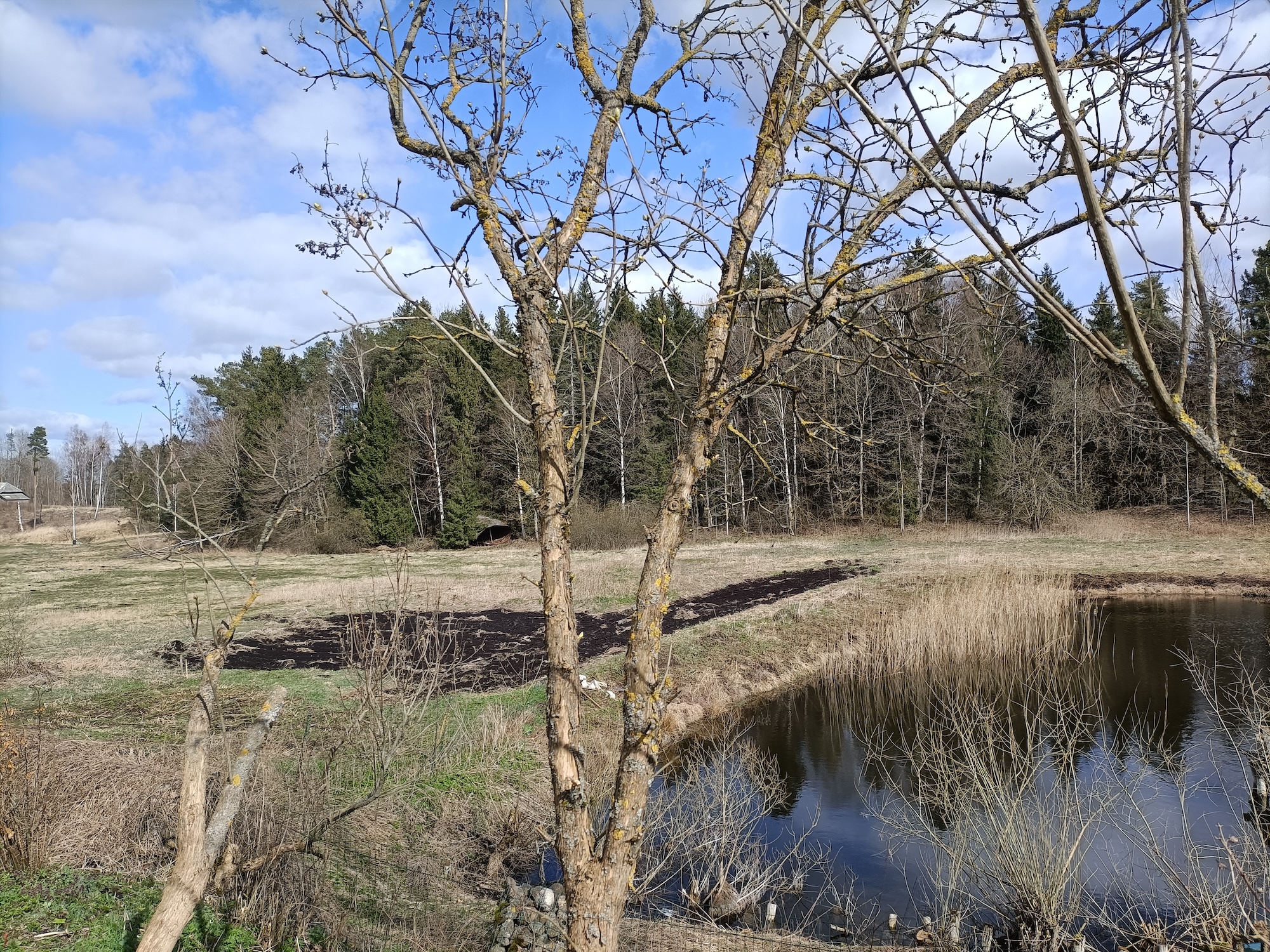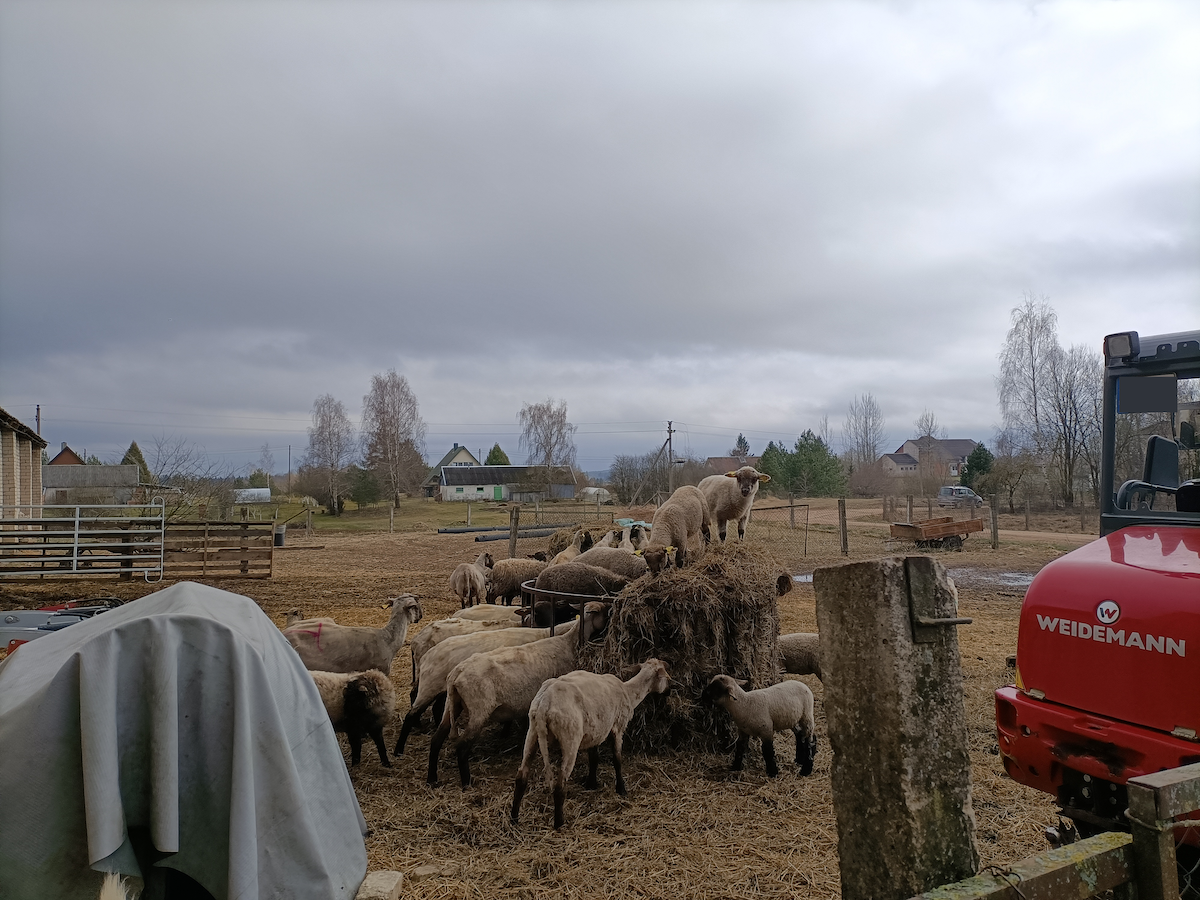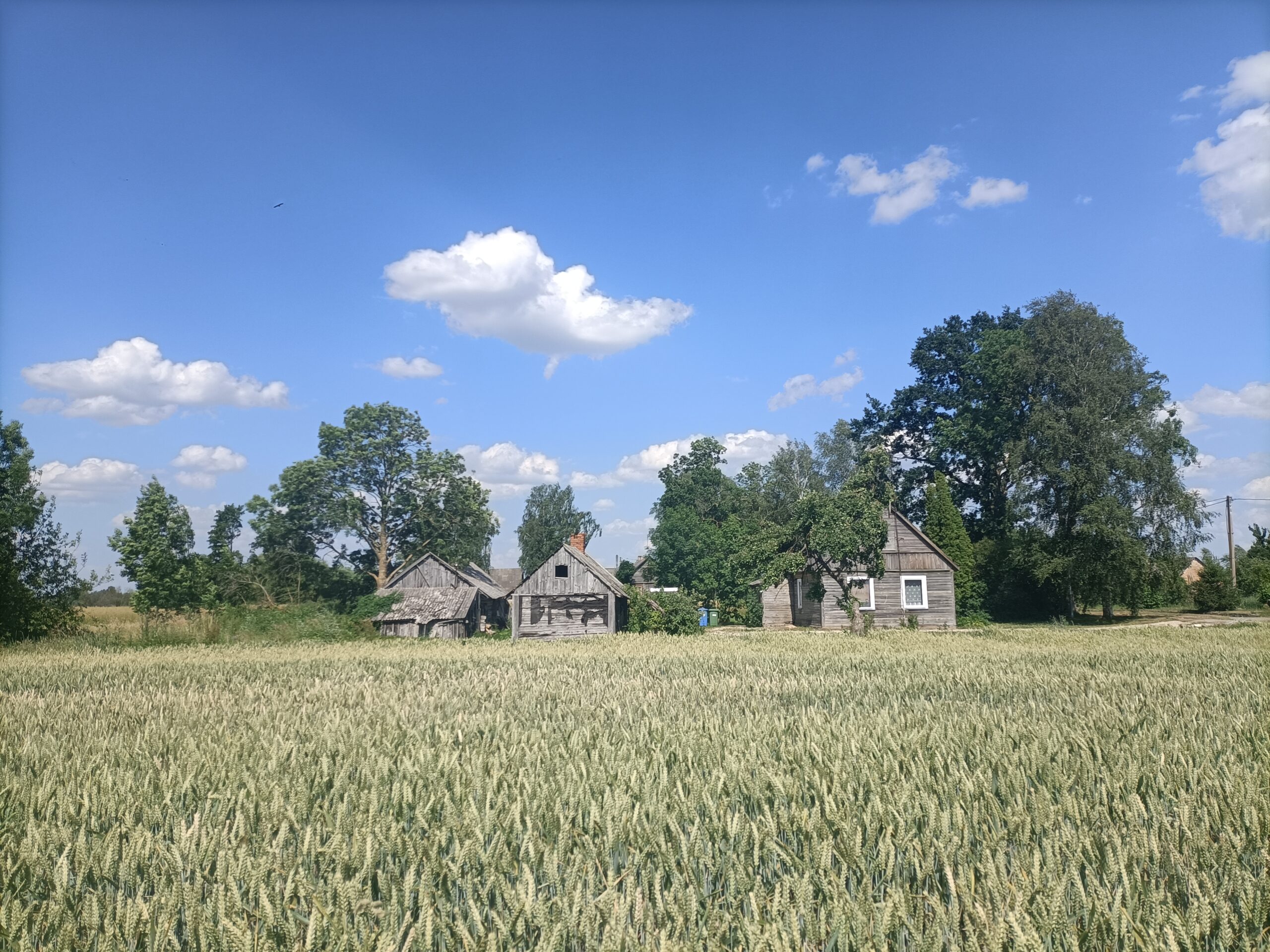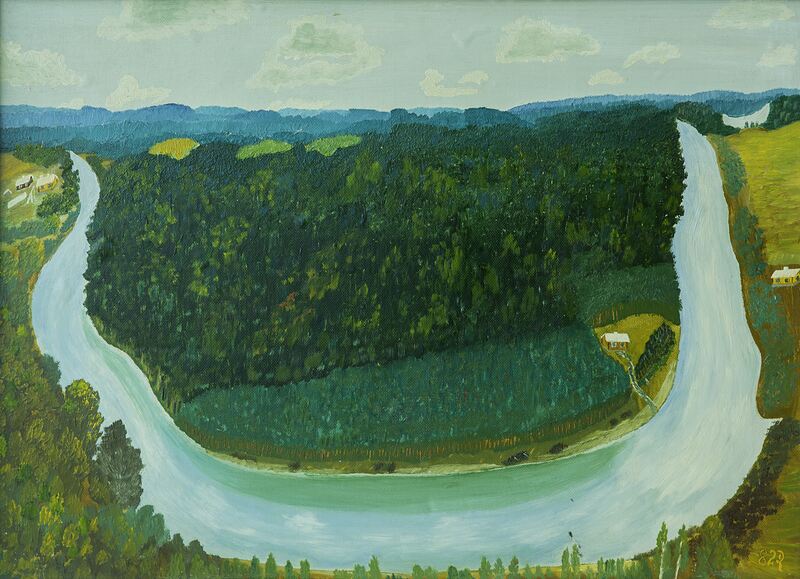The geographers’ team at the PAScapes Centre is conducting several research projects on the transformation of rural landscapes in Lithuania. The members’ team are Prof. dr. Jurgita Mačiulytė, Assoc. Prof. dr. Ieva Misiūnė, Assoc. Prof. dr. Ričardas Skorupskas, Prof. dr. Darijus Veteikis, dr. Camille Robert-Boeuf (postdoctoral fellow), and Julius Mačiulaitis (PhD student). Several students from the Geography Department also take part in surveys as part of their training. The team works based on GIS analyses, questionnaire surveys and interviews in several Lithuanian regions (mainly but not exclusively Skaistgirys, Suginčiai and Varkaliai).
Since 2024, Prof. Jurgita Mačiulytė and dr. Camille Robert-Boeuf have conducted surveys with farmers in Skaistgirys, Suginčiai and Šalčininkai. They analyze the long-term transformation of agricultural structures since decollectivization and Lithuania’s entry into the European Union. In particular, they study the transformation of small and medium-sized farms and how farmers, by maintaining certain traditional practices or innovating, preserve inherited cultural landscapes and create new ones. The various case studies will enable the identification of specific regional features in the construction of landscapes. Dr Camille Robert-Boeuf also explores the role of women and semi-subsistence practices in transforming rural landscapes, comparing Lithuanian and Polish cases.
Assoc. Prof. dr. Ieva Misiūnė is preparing a study on ecosystem services and other values people attribute to nature, and how these have shifted over time due to Soviet land reclamation. Photovoice interviews with elderly residents in lowland and upland regions will explore how these large-scale transformations affected perceptions of nature and its values. The study highlights changing relationships with the landscape through personal stories and photo elicitation. The study highlights long-term shifts in how people relate to transformed landscapes and contributes to understanding post-authoritarian legacies in shaping environmental attitudes.
Prof. dr. Darijus Veteikis is a researcher in the PAScapes Research Centre at Vilnius University. His research focuses on analyzing land use change sequences in Lithuania’s lowland and morainic upland regions during the period 1946–2020, using four key time points: 1946, 1970, 1995, and 2020. D. Veteikis investigates how Soviet land reclamation and collectivization campaigns reshaped agrarian landscapes, and how these territories continued to transform in the post-Soviet era. Particular attention is given to the contrasting dynamics between clay plain lowlands and morainic uplands, including the diversity of land use conversion trajectories and their ecological implications. His work contributes to the broader PAScapes initiative, which explores eco-social legacies in (post)authoritarian landscapes.
Julius Mačiulaitis is a PhD student in physical geography at Vilnius University, researching the sustainability of agroecosystems, landscape change, and landscape planning. Within the project, Julius works with archival cartographic sources – he is responsible for their processing, digitisation, and systematisation. The primary archival materials consist of cartographic documents from the former Republican Land Management Design Institute (Respublikinis žemėtvarkos projektavimo institutas), including land use, soil, and administrative division plans from the period of the Lithuanian SSR. Other important sources for understanding the development of cultural landscapes include historical aerial photographic plans and contemporary aerial imagery. Julius also contributes to the preparation of digital spatial data using GIS technologies. In March 2025, he prepared a poster presentation for the national conference Chemistry and Geosciences 2025, in which he presented a methodology for the digitisation of archival aerial photographs, their integration with modern aerial photographic data, and highlighted the importance of developing long-term data sequences for studying the evolution of cultural landscapes in Lithuania.
Photos by Camille Robert-Boeuf



